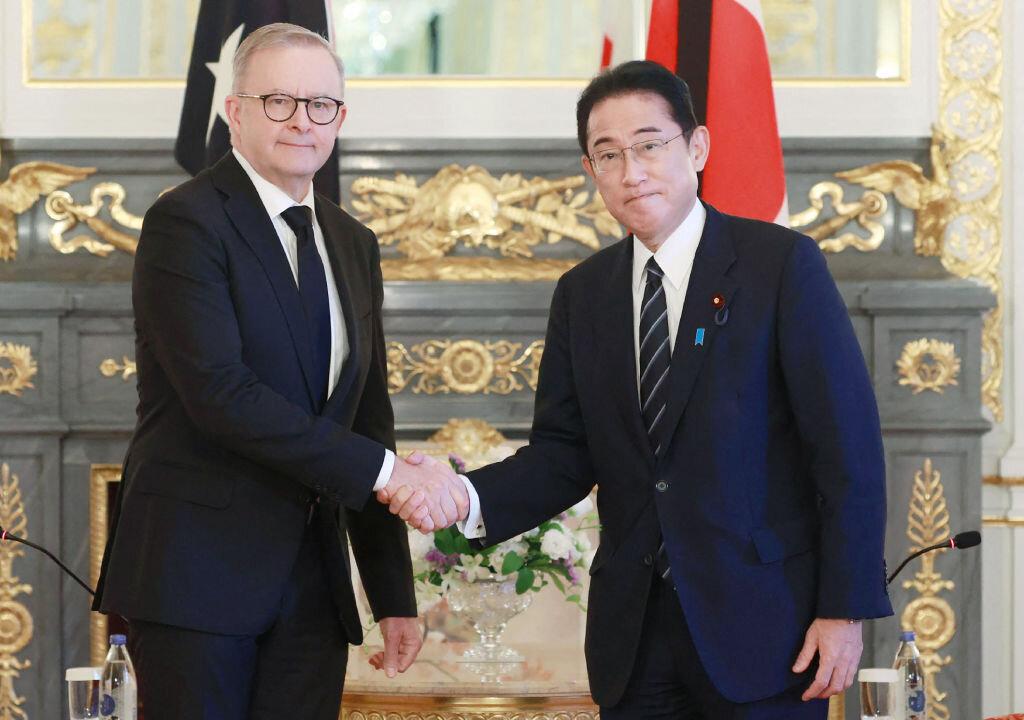Japan and Australia have signed a joint security pact allowing them to consult on “contingencies” that threaten their national security interests amid growing concerns over China–Taiwan tensions.
Japan’s Prime Minister Fumio Kishida and his Australian counterpart, Anthony Albanese, signed a joint declaration (pdf) in Perth on Saturday, which is an updated version of a declaration signed between their predecessors in 2007.





